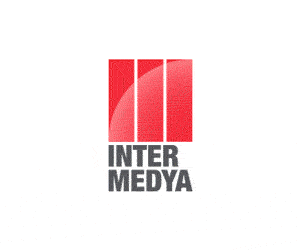
Warner Bros Discovery’s (WBD) "World’s Ultimate Frontier", the recently released co-production with Mainland China’s state-backed China Global Television Network (CGTN), has drawn the attention of U.S. lawmakers, who earlier this year accused WBD of whitewashing China’s policies in Xinjiang.
The five-episode series premiered on CGTN’s Global Watch YouTube channel on 19 January 2024, presenting Xinjiang as, among other things, a new, modern, hi-tech centre that preserves and promotes ethnic languages, and a region where the barren wastes of the Taklamakan Desert are being given a new lease of life. No mention is made of the plight of the Uyghur population, an omission that raised ire in the U.S.
"World’s Ultimate Frontier" credits 11 WBD execs, including Greater China and SE Asia GM Tony Qiu, and head of production–editorial, Vikram Channah. The end credits appear to have been removed from the YouTube episodes in the past week, although screengrabs are being circulated, and the Discovery logo remains on the IMDb poster.
The U.S. investigation in Feb/March this year coincides with a Chinese Government Friendship Award given to Channah in Feb 2024 at a ceremony at Beijing’s Great Hall of the People. According to the Beijing Normal University, where Channah is a professor at the School of Art and Communication, the Discovery team has produced almost 200 documentaries about China, “making significant contributions to the international communication of China’s stories”.
The U.S.-based National Review broke the story about the U.S. investigation.
The Valentine’s Day letter to WBD CEO, David Zaslav, published on X by writer Jimmy Quinn (twitter.com/james_t_quinn), requested WBD disclose details of its partnership with CGTN, and asked whether the company was involved in any other collaborations or co-productions with Chinese state-owned/controlled media agencies.
The letter asked Zaslav what led to WBD’s decision to partner with CGTN on this specific documentary series about Xinjiang; and what he thought the impact of the partnership was ...
Warner Bros Discovery’s (WBD) "World’s Ultimate Frontier", the recently released co-production with Mainland China’s state-backed China Global Television Network (CGTN), has drawn the attention of U.S. lawmakers, who earlier this year accused WBD of whitewashing China’s policies in Xinjiang.
The five-episode series premiered on CGTN’s Global Watch YouTube channel on 19 January 2024, presenting Xinjiang as, among other things, a new, modern, hi-tech centre that preserves and promotes ethnic languages, and a region where the barren wastes of the Taklamakan Desert are being given a new lease of life. No mention is made of the plight of the Uyghur population, an omission that raised ire in the U.S.
"World’s Ultimate Frontier" credits 11 WBD execs, including Greater China and SE Asia GM Tony Qiu, and head of production–editorial, Vikram Channah. The end credits appear to have been removed from the YouTube episodes in the past week, although screengrabs are being circulated, and the Discovery logo remains on the IMDb poster.
The U.S. investigation in Feb/March this year coincides with a Chinese Government Friendship Award given to Channah in Feb 2024 at a ceremony at Beijing’s Great Hall of the People. According to the Beijing Normal University, where Channah is a professor at the School of Art and Communication, the Discovery team has produced almost 200 documentaries about China, “making significant contributions to the international communication of China’s stories”.
The U.S.-based National Review broke the story about the U.S. investigation.
The Valentine’s Day letter to WBD CEO, David Zaslav, published on X by writer Jimmy Quinn (twitter.com/james_t_quinn), requested WBD disclose details of its partnership with CGTN, and asked whether the company was involved in any other collaborations or co-productions with Chinese state-owned/controlled media agencies.
The letter asked Zaslav what led to WBD’s decision to partner with CGTN on this specific documentary series about Xinjiang; and what he thought the impact of the partnership was on the credibility of the Discovery Channel.
Zaslav was asked whether he would “commit to suspending this partnership and all other future partnerships with CGTN and other Chinese state-owned or -controlled media outlets, particularly where such partnerships have the appearance of Discovery endorsing CCP policy and echoing Party propaganda?”
The group urged Zaslav to “suspend this partnership with CGTN immediately and to abstain from entering into any similar partnership with any other agent of CCP influence” if he wanted Discovery to “maintain any semblance of credibility”.
“We find it deeply disturbing and unacceptable that Discovery, an American media company which is most known for documentary filmmaking – a genre ostensibly intended to help viewers understand the truth – is co-producing such an obvious work of propaganda on the part of a totalitarian, adversary regime,” the letter read.
The investigation was led by Representative Jim Banks, whom the National Review quoted as saying that “the Chinese Communist Party produces enough propaganda without the help of an American media company”.
“I don’t understand how Warner Bros. Discovery, who claims to be a ‘champion for inclusion and equity,’ would allow themselves to be complicit in whitewashing the Communist Party’s forced labor and genocide in Xinjiang,” Banks is quoted as saying.
WBD was asked to provide answers by 1 March 2024. The transcript of the response, written by Covington & Burling LLP’s Brian D. Smith for WBD, has not been made public.
In its follow-up on 7 March, the National Review said WBD had, in its response to the letter, distanced itself from the partnership with “a Chinese Communist Party propaganda organ”.
The National Review said WBD conceded “that it would not have made the same decision today”.
WBD is said to have pointed out that the agreement for the CCTV/CGTN-funded series was negotiated in 2020/2021 by the Singapore-based Discovery Networks APAC before Discovery’s 2022 merger with Warner Bros.
WBD confirmed that the series would not air on any of its channels or platforms, and said it requested the Discovery Channel logo be removed. WBD is also quoted as highlighting its broader coverage of Xinjiang and the Uyghurs, including reporting by CNN.
WBD’s Asia-Pacific office is not commenting on the investigation, the letter, the response or ongoing projects with CGTN, CCTV or other state-backed media agencies.



















